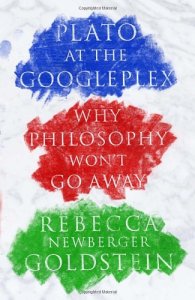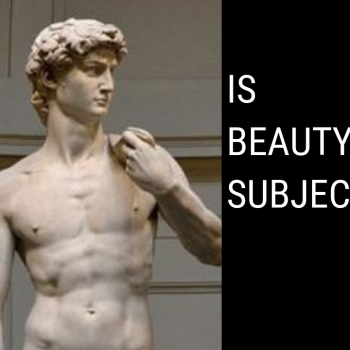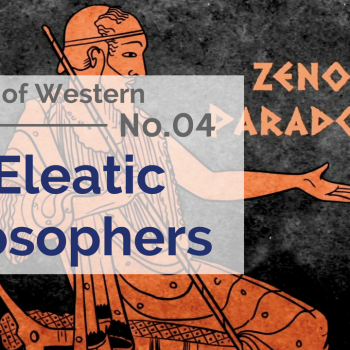
Very interesting five-year-old comments made by the famous atheist Richard Dawkins re-surfaced on the internet last week. Now some reading the title of this post might think I am going in a political direction here in response to Dawkins, but I’m not – at least not directly. My goal is actually to “hook you” and lure you into philosophical depths you might otherwise shy away from.
I enjoyed this engaging and inspiring (for this Christian!) 5-minute video from Lutheran pastor Jonathan Fisk, which explores Dawkins’ comments in some depth. At the same time, if I were to actually try and start a conversation with Richard Dawkins, I’d go in another direction (as would the good pastor, I am guessing).
Fisk points out that Richard Dawkins, given his professed atheism, has no way to talk about why something is “worse” or “better” in “a world without meaning”. True enough in one sense, for Dawkins has admitted that he does not believe that good and evil really exist. Point to Fisk.
But from the perspective of the matter of survival – or simply “continuing to live” (see here for more on this) – doesn’t Dawkins have a good point, regardless of the deeper issues of morality at play here? Point Dawkins, it seems!
That said, most persons don’t want to give the impression that the only thing that matters is what human beings think is practical to survive and flourish! Simply put, personal responsibility and consequences for actions have to be more than a purely pragmatic matter, right? And Christians in particular certainly don’t want to give the impression that atheists only know that the only thing that matters is being practical. Many – perhaps even Dawkins – would insist that as human beings they have deep feelings and convictions about matters of good and evil, right and wrong (even as persons like Dawkins don’t think it really exists “out there” for us in any sense).

And of course they do! – even if the content of their convictions regarding these things is godless and hence off to this or that degree. And even if their naturalistic philosophy, culminating in a ruthless modern scientific and technological mindset, in fact undermines all stable rational ground for those convictions.[i] It is just that for them, ultimately, man (that is certain men, by definition the “reasonable” ones) does indeed end up being the “measure of all things”.
The believer believes that real rights and wrongs derive from God, but the unbeliever will state they believe in these things for different reasons. Nevertheless, we can insist that everyone knows – even if this, like knowledge of God, is suppressed deeply within their hearts – that we must speak not only of something we call wisdom, but goodness and righteousness as well.
Let’s explore this in some more detail. First, what is wisdom? Is there, perhaps, even wisdom in Dawkin’s remarks? I would not go that far. I would say there is knowledge – and publicly accessible knowledge[ii] – in Dawkin’s remarks. And scholars like Dawkins often have a lot of knowledge they can share because they indeed are devoted to the practice of scholarship. So why, more exactly, is scholarship distinct from wisdom?
We might say that scholarship at its best is about “discovering the unknown or rediscovering the forgotten” (desire from curiosity and to solve problems both are involved here). And here, it must be said, that scholarship is distinct from the search for wisdom, which, as far as the world (not the church) goes, we can associate with pre-Enlightenment philosophy (generally not post-Enlightenment philosophy). Here Socrates said “the ignorant [do not] seek after wisdom; for herein is the evil of ignorance, that he who is neither good not wise is nevertheless satisfied with himself.” At the same time though, in another sense, no one can avoid being a philosopher!
For all real philosophy – even today – is simply about what it means to be a human being. This means it is about how we are to live, and all persons also believe that not just any way or “form of life” will do – some, in fact, must be discouraged or even actively suppressed. This is why many in the modern West have fought against religious practices like sentencing heretics to death, sati (widow-burning), and female circumcision, for example. And as is becoming increasingly clear today, even some of our most “enlightened” people want to take this even further (where, for example, even certain conscience-driven practices that do not cause physical harm must nevertheless be made unthinkable). And in this regard, all human beings – even the most “postmodern” among us – are constantly trying to organize, define, and state what is true – particularly regarding who we are and how we are to live – our purpose (here, the element of “story”, or narrative, is inevitable as well).[iii]
![“The [scientific] purification [of philosophy] made it no longer sensible to speak of nature, including human nature, in terms of purposes and functions.”](https://infanttheology.files.wordpress.com/2016/01/socrates-tenured.jpg?w=200)
One major reason for this is because if we grow disposed to ignore truth, our neighbor will not let us do so entirely. He will “communicate” this to us in one way or another, through a respectful conversation or not. It is also for this reason that all cannot but speak of relatively “wise” and “righteous” persons – these are those who understand they must live in the world in accordance with what ultimately is (not what “is” contingently among human beings), sensing at some level that what is cannot be separated from notions of teleology.[v] And I would argue that those who say “we don’t ‘know’ this” actually do know this at some level – as their attitudes and actions towards certain undesirable “forms of life” ultimately show.
To say the very least, can most of us not agree that a good person…. a righteous person… a true person… lives well by recognizing seemingly permanent limits in the cosmos – and their own limitations?[vi] This, of course, would include recognizing the things in life as being more than mere mindless and purposeless matter – or even more than mindful and purposeful matter! (see Thomas Nagel) – to be fashioned or even overcome by sheer wit, intelligence and will – and even the human spirit.[vii] And all of this, I submit, can also be evaluated primarily on the basis of external behaviors.[viii]
To begin to say more, we can, for example, puzzle over the mystery of justice and gratitude – these things, though often fuzzily understood, are, as well. As the Christian philosopher Thomas Reid pointed out many years ago, “gratitude for favors only makes sense because a favor goes beyond what is just.” The truth of this realization must be wrestled with: for it is not just unique to any particular human culture… some matter which is clearly contingent. What does this mean?
And what does it mean that you and I and most any other educated human being can even have this conversation? What does it mean that you know exactly what I am talking about? How is that even possible? Some of our friends, generally those on the political left, say that it is always true that “we” only makes sense relative to a particular community – only particular “communities of practice” can really understand their own. But if you are a non-Christian who is generally tracking with what I am saying in this post, this fact alone shows such claims to be nonsense. After all, do we not recognize other human beings, among all the creatures in our world, as those to whom we can relate to and communicate meaning with (giving and receiving reasons), precisely because we share a common humanity? In our scientific age, we might point out that the classical philosopher Aristotle may have gotten much wrong – but not this “rational animal” thing!

And why is this? To update Aristotle for today, I would suggest that it is because there is indeed a human community of practice. Much of what this community does – the “game” it plays – is trans-cultural and trans-historical. Or again, at the very least it is potentially trans-cultural and trans-historical (thinking of feral children here). After all, it seems clear that many of the things in the world – making their presence known with their more or less intractable ways – have been structuring our attention from humanity’s first breath.
Again, teleology is rightly seen as being connected with our ethics, our view of what is right and wrong – how human beings should act in light of what ultimately is… how we fit in with that.[ix] Life is about more than being practical, which includes as a core component recognizing seemingly permanent natural limits and one’s own limitations. It is also about beginning to realize and respect a) the deeper ends or goals that cause this to be the case, and b) that there is in fact an enduring moral order, much of which seems to be an inviolable and permanent part of being human.
As to where we go from here I note that the Christian philosopher Gregory Schulz says philosophy is best done in dialogue – and would this not, as he says, go especially for dialogue with God Himself? (given that He is real, is it not likely He would desire to clearly communicate with us in some way?). I suggest reading Romans 1-3 and wrestling with what the Apostle Paul says there (don’t miss the good news at the end of chapter 3!).
There, you will find desperately needed wisdom. And that is the real reason for looking to the “bulwark of Christianity”. The mighty fortress that is our God.
FIN
Images: Dawkins (http://www.flickr.com/photos/jurvetson/3987330279/) ; found via a Creative Commons Search in Flickr images for “joyful boasting”
Notes:
[i] I.e., none of them trust in any non-material force, being, thing or entity that is really good or strong enough to dissuade a particular human being who has the power to impose his evil will on other human beings. This does not mean that some do not believe there is truth that can do this, or should be able to do this. In her book Plato at the Googleplex, Rebecca Goldstein explains Spinoza’s views, which derive in part from Plato, which she explains by saying: “The beauty of proportionality that has led one on, because one loves it, would cause one to abhor a situation that would bring one into disproportion with everyone else… the impersonally sublime is internalized into personal virtue.” (p. 392, 393, see Gorgias 507e-508a, Philebus 64e, and Timaeus 47b-c). On pages 384-385, she says “Plato… is firmly on the side of the Reasonables. Everything we need to know – intellectually and morally – is out there” and “there is no escaping evaluation, no more in deciding what is rational to believe than in deciding what is ethical to do”. But here, one is really only left with notions of balance, moderation, and proportion regarding morality, perhaps to be negotiated over with one’s fellows. Hence, Plato portrays Socrates in his dialogues as being interested in the proper nature and goals of pederastic relationships.
[ii] Some would argue that anything that we might call knowledge must be publicly accessible. I think this is a reductionistic way of looking at things that is deeply wrong.
[iii] All, at some level, have felt and feel the need to explain the world in a way that brings coherence to the truths or “facts of life” we can all know – particularly those that capture attention trans-culturally and even trans-historically – even as various persons are either more or less confident that they have a “sense of the Totality” which they grasp. In any case, we should not be so naive to think that we are not always attempting to guide others’ consciences (i.e. “indoctrinate” to this or that degree) – we cannot avoid this. Therefore, while I am highly sympathetic to this essay about the recent madness occurring on college campuses, I am hesitant to give a full-throated endorsement, as it seems to lack the necessary nuance. Should normative ethics never be taught in a university?
[iv] Stated a bit more carefully, perhaps we could say that all significant questions and problems philosophers attempt to seriously address and make conclusions about emerge in part because of specifically moral – and teleological (with happiness or contentment being the end) – considerations. At the very least we can say this: in short, we should all be asking to what extent the sense of morality that we feel convictions about (often based on our personal experiences with others and our evaluations of the shorter or longer term consequences of our actions) drives or at least influences our consideration and evaluation of various kinds of evidence and their significance (correspondence theory of truth considerations) as well as various kinds of worldviews and their significance (coherence theory of truth considerations).
[v] Of course all agree some things, here and there, should change. The cosmos is not some perfect machine nor are we justified in thinking it is a machine of any kind. Proposition here about these contingent things that can and should change: any true progress would entail definite and discernible goals that we should work to be aware of and that we should work towards – where the vision of what is good is not always changing. If the answer is that the vision is something we totally invent and not primarily discover, how do we effectively and realistically work to change what needs to be changed in the world when we are always changing our minds? (channeling Chesterton here). For their part, Christians assert that believing in some kind of design in the world (often called “natural law” or the “law of nature”) does not mean that even everything that appears natural in humans is “good”. For example, racism, slavery, and the oppression of women, children, and the poor have at times throughout history – even to the greatest and most noble of thinkers – seemed to be “natural” to man (and these can only be countered with deliberate human intention, for whatever motivations), but in truth are corruptions of purpose and “not the way it is supposed to be”. I note that this explains in part the enthusiasm that many practicing Christians had for the program of Francis Bacon – who as part of his critique of Aristotle criticized his “knowledge” about the discernible purposes of this or that thing – as well as for the program of the Enlightenment (are not even liberty, equality, and fraternity in fact biblical concepts? And where in the history of philosophy, has philosophical faith in “the force of the best reason”, for example, shown that “all humans are created equal and are entitled to equal rights”? Really, which non-Christians philosopher ever said this and what were his/her reasons? Yes, the silence is deafening….). Here, arguments like atheist Michael Shermer’s are shown to be lacking in an immense way (Incidently, Shermer also admits that most of his fellow atheists, like Dawkins, think it is impossible to ground morality in anything objective, or outside of human beings).
[vi] This would go hand in hand with recognizing that there are seemingly permanent orders and structures in the cosmos that demand our respect. In which case, it would seem that what is good and right and true is about more than what is pleasurable and what is evil and wrong and false is about more than what is painful. Not only as concerns short-term and fleeting excitements but also as regards some longer-term, seemingly meaningful, and fulfilling pleasures.
[vii] Curtis White, for example, is a “Romantic” but is nevertheless “in the tank” with the philosophical naturalists: the attack on the arts is “also an attack on our earliest human instinct: our ability to invent our way to survival.” (p. 91, italics his, The Science Delusion). Furthermore, progressive Christian Eric Reitan seems unable to separate pragmatism from morality (see here).
[viii] I.e. because we are rationally inconsistent creatures our actions are finally that which must define us. For example, when it comes to this or that, mere curiosity about what ultimately is, not conviction, often describe our beliefs and attitudes (because, as Woody Allen said, “the heart wants what it wants”).
[ix] Should the fact that the connection between “male”, “female” and “offspring” is clearly more than linguistic mean a lot more to us than it currently does? J.B.S. Haldane said “Teleology is like a mistress to a biologist: he cannot live without her but he’s unwilling to be seen with her in public.” Further, Matthew Crawford, in his The World Outside Your Head (pp. 50-51) says, “the world is known to us because we live an act in it, and accumulate experience… we think through the body” and as R.R. Reno has asserted, our bodies have intrinsic moral meaning. This is a different – though very related – discussion than the one I have laid out here. Nowadays, of course, it relates in that in connects with what I wrote in the footnote above about what is related to true progress – “true becoming”.












